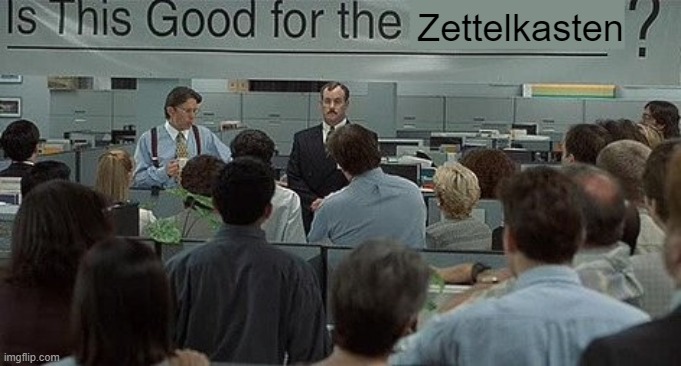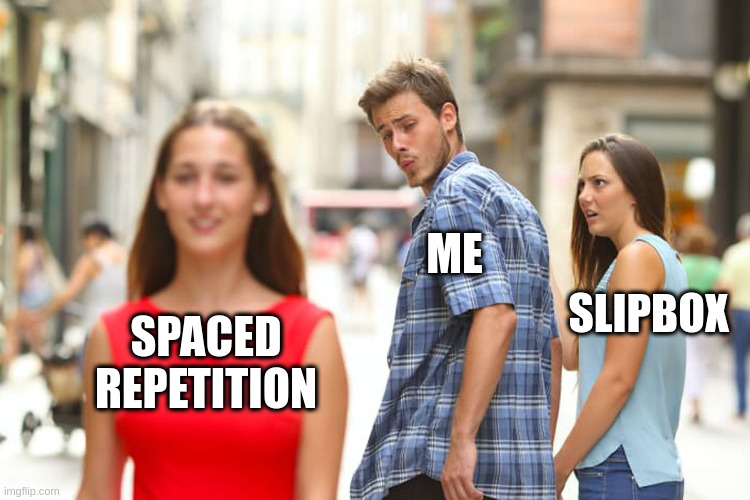France, Anatole. L’Île Des Pingouins. Project Gutenberg 8524. 1908. Reprint, Project Gutenberg, 2005. https://www.gutenberg.org/cache/epub/8524/pg8524.html
Death by Zettelkasten!!
(Coming soon to a theater near you...)
In the preface to the novel Penguin Island (L'Île des Pingouins. Calmann-Lévy, 1908) by Nobel prize laureate Anatole France, a scholar is drowned by an avalanche of index cards which formed a gigantic whirlpool streaming out of his card index (Zettelkasten).
Link to:
Historian Keith Thomas has indicated that he finds it hard to take using index cards for excerpting and research seriously as a result of reading this passage in the satire Penguin Island.<br />
https://hypothes.is/a/rKAvtlQCEe2jtzP3LmPlsA
Translation via:
France, Anatole. Penguin Island. Translated by Arthur William Evans. 8th ed. 1908. Reprint, New York, NY, USA: Dodd, Mead & Co., 1922. https://www.google.com/books/edition/Penguin_Island/6UpWAvkPQaEC?hl=en&gbpv=0
Small changes in the translation by me, comprising only adding the word "index" in front of the occurrences of card to better represent the historical idea of fiches used by scholars in the late 1800s and early 1900s, are indicated in brackets.
The walls of the study, the floor, and even the ceiling were loaded with overflowing bundles, paste board boxes swollen beyond measure, boxes in which were compressed an innumerable multitude of small [index] cards covered with writing. I beheld in admiration mingled with terror the cataracts of erudition that threatened to burst forth.
“Master,” said I in feeling tones, “I throw myself upon your kindness and your knowledge, both of which are inexhaustible. Would you consent to guide me in my arduous researches into the origins of Penguin art?"
“Sir," answered the Master, “I possess all art, you understand me, all art, on [index] cards classed alphabetically and in order of subjects. I consider it my duty to place at your disposal all that relates to the Penguins. Get on that ladder and take out that box you see above. You will find in it everything you require.”
I tremblingly obeyed. But scarcely had I opened the fatal box than some blue [index] cards escaped from it, and slipping through my fingers, began to rain down.
Almost immediately, acting in sympathy, the neighbouring boxes opened, and there flowed streams of pink, green, and white [index] cards, and by degrees, from all the boxes, differently coloured [index] cards were poured out murmuring like a waterfall on a mountain-side in April. In a minute they covered the floor with a thick layer of paper. Issuing from their in exhaustible reservoirs with a roar that continually grew in force, each second increased the vehemence of their torrential fall. Swamped up to the knees in cards, Fulgence Tapir observed the cataclysm with attentive nose. He recognised its cause and grew pale with fright.
“ What a mass of art! ” he exclaimed.
I called to him and leaned forward to help him mount the ladder which bent under the shower.
It was too late. Overwhelmed, desperate, pitiable, his velvet smoking-cap and his gold-mounted spectacles having fallen from him, he vainly opposed his short arms to the flood which had now mounted to his arm-pits . Suddenly a terrible spurt of [index] cards arose and enveloped him in a gigantic whirlpool. During the space of a second I could see in the gulf the shining skull and little fat hands of the scholar; then it closed up and the deluge kept on pouring over what was silence and immobility. In dread lest I in my turn should be swallowed up ladder and all I made my escape through the topmost pane of the window.

